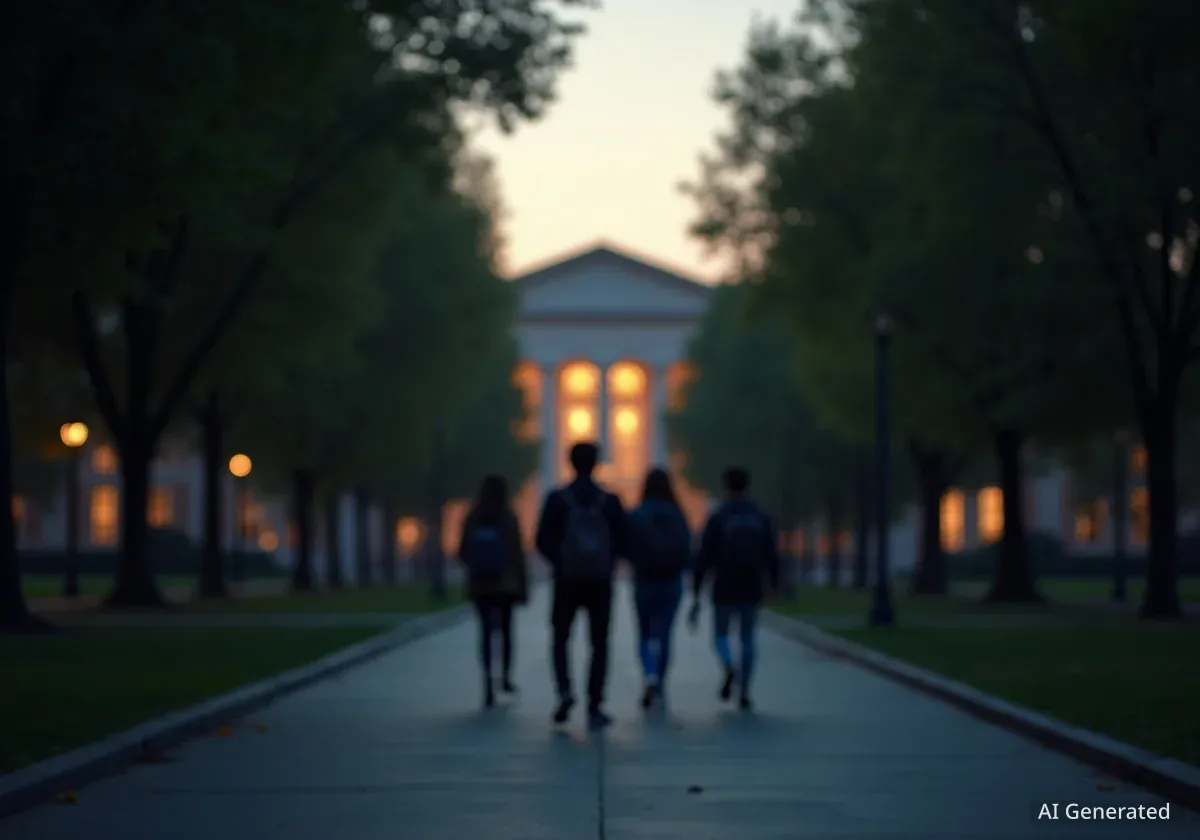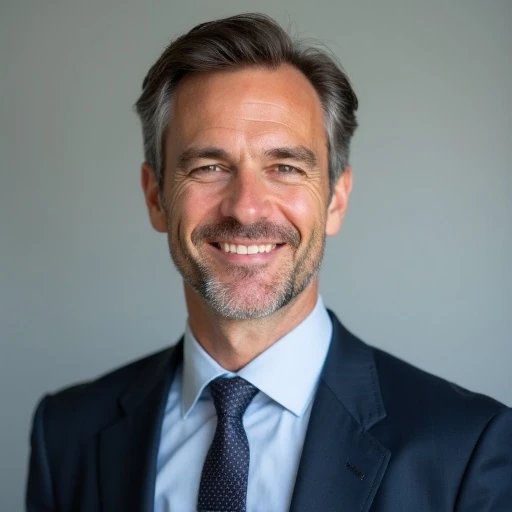The recent fatal shooting of Charlie Kirk at Utah Valley University (UVU) has prompted deep reflection among students and faculty. The incident occurred just hours after an introductory Peace and Justice class, taught by Lynn England, discussed the origins of violence, bringing theoretical concepts into a stark, immediate reality for the campus community.
Key Takeaways
- A fatal shooting at UVU led to campus-wide discussions on violence and safety.
- Faculty, like Lynn England, prioritized student well-being over immediate return to lesson plans.
- The incident highlighted ongoing debates about free speech and campus climate.
- Students expressed fear and a desire for more civil dialogue.
- Memorials appeared on campus, reflecting varied perspectives on the victim.
Immediate Impact and Student Reactions
The shooting on campus created a profound sense of shock and fear. Students, many of whom witnessed the event or knew someone who did, struggled with their emotions. The incident quickly moved from a theoretical classroom discussion to a tangible, frightening experience.
Kade Van Ry, a student in England's Peace and Justice course, described his initial reaction as an "awful, disgusting feeling." He questioned how students could continue studying peace after such an act of violence. This sentiment was echoed by other students who expressed difficulty articulating their feelings without strong language.
"How are we supposed to go back to school and study peace studies," Van Ry asked, knowing that "one person can come in and make the entire campus afraid and spread hate?"
Another student, who chose to remain anonymous, highlighted Kirk's stated intent to engage in dialogue. "Charlie was an unarmed man who wanted to talk," the student stated. "That was his whole thing. He wanted to talk to us and he got killed for that. So now how many of us want to talk?" This question underscored a pervasive fear about open discussion following the event.
Campus Snapshot
- University: Utah Valley University (UVU)
- Location: Orem, Utah
- Student Population: Over 46,000
- Nature: Open-access campus, largely commuter students
Professor England's Approach to Healing
Lynn England, a professor with 55 years of teaching experience, prioritizes creating a safe space for open dialogue in his classroom. He believes students from all backgrounds and political views should feel comfortable discussing polarizing issues respectfully. Following the shooting, England chose to deviate from his planned curriculum.
Instead of immediately resuming lesson plans, England dedicated his five classes that day to discussing student feelings. He asked questions like: "Where do we go now? Do we get caught up in the rhetoric or do we start reaching out to each other?" This approach aimed to address the emotional impact on students directly.
About Professor Lynn England
England previously taught sociology at Brigham Young University for 35 years before coming to UVU. He has spent the last nine years directing UVU's interdisciplinary program in peace and justice studies. He is 85 years old and plans for this to be his final year of teaching.
England emphasized the importance of free speech and academic freedom at the university. He strives for a classroom environment where all respectful opinions are heard. "People should get the feeling in my classroom that it is a safe place where any respectful opinion will be treated seriously and respected," he explained. "If you’re trans, you can be trans here. If you’re a communist, you can be a communist. Disagreeing with me has no consequences except I’ll like you for disagreeing with me."
Divisive Debates and Campus Climate
The incident intensified existing national debates on free speech and political discourse, particularly within higher education. On the UVU campus, students continue to clash over Kirk's legacy. Some view him as a free-speech advocate, while others describe him as a promoter of racist, transphobic, and xenophobic ideas.
These divisions are particularly sharp at UVU due to the direct impact of the shooting. Many students felt a personal connection to the event. The university prides itself on a welcoming and safe atmosphere, both physically and intellectually, making the disruption even more impactful.
Many individuals interviewed on campus agreed that the killing was unjustified. They also expressed a desire for colleges to foster more civil dialogue. However, they noted that this is difficult when faculty fear criticism and students worry about negative social repercussions for speaking out.
Memorials and Public Statements
Two distinct memorials appeared on campus. One, near the Sorensen Student Center, featured a chalked quote from Kirk advocating for "more conversations with the other side." Noah and Shannon James, junior students and a married couple, paused at this site.
Noah James stated, "I hope it’s possible, but it’ll take a lot more work — the kind of work Charlie was doing, seeing the good in people." Shannon James added, "There are a lot of people who like to talk but not to listen. I hope we can return to our education and be patient and kind to each other."
A larger memorial formed near the shooting site. This area, an expanse of grass next to a parking lot, became a focal point for remembrance. It featured flowers, American flags, stuffed animals, and handwritten posters. Messages included laments about violence, thanks to Kirk, scriptural quotes, and calls for justice.
Rachel Cowley, a UVU alumna, visited the memorial with her twin brother. She expressed admiration for Kirk, stating, "I loved that he cared about his faith and that he spoke the truth even when people didn’t want to hear it." Cowley also voiced concerns about perceived liberal bias in college professors, citing her own experience in a multicultural-education course.
Dylan Collier, accompanied by his wife Kris, wore a jacket with a provocative message, expressing frustration with what he perceived as a need to apologize for his identity. He agreed with Kirk's view that higher education can be a "dangerous waste of time" and a "breeding ground for liberal indoctrination."
The Role of Education in Bridging Divides
The academic discussions in England's class before the shooting focused on the origins of violence. Students learned that denying or suppressing identity and needs can lead to physical violence. According to Johan Galtung, a Norwegian sociologist and founder of peace and conflict studies, addressing psychological and social forms of violence is crucial.
Matthew Erickson, a senior political science major, acknowledged the horror of the killing but expressed disagreement with Kirk's methods. "What he did with his life was spreading hate and misinformation," Erickson said. He argued against the idea that college fosters extremist views, stating, "The more educated the populace, the less likely they are to resort to violence."
England recalled a past debate at the University of Utah between William F. Buckley Jr. and a liberal professor. This debate lasted for hours, characterized by facts and principles, ending with mutual respect. England contrasted this with some modern "gotcha" tactics, where public figures might intentionally embarrass undergraduate students for social media content. "It’s immoral to be setting undergraduate students up like that," England stated.
Students in England's class lamented the increasingly personal nature of political disagreements. "The freedom of speech doesn’t mean anything if we’re not willing to listen," said Kade Van Ry, committing to more active listening. Lauryn Spilsbury noted how the shooting led to social media conflicts and strained friendships, impacting her sense of hope.
Lingering Fear and Future Outlook
The fear among students remains palpable. One anonymous student described feeling "very aware of my surroundings" after the lockdown, even fearing being parked next to a "MAGA truck." England himself recounted the terror in students' eyes during the emergency evacuation.
Despite these challenges, England tries to maintain hope, observing that most of his students are willing to engage in respectful dialogue. However, he also noted a student who chose not to speak in class, fearing that expressing an opinion would make them a target. "I really fear that’s a common feeling," England said, "that the best strategy is to shut your mouth and grit your teeth." This suggests a continuing struggle for open and safe discourse on campus.
The UVU Peace and Justice program, directed by England, is small but impactful. It offers general education credits and a minor for political science majors. The program hosts speakers on careers in mediation, law, activism, and humanitarian work, aiming to foster skills for peaceful engagement.
England, who never doubted the transformative power of college, plans to retire this year to spend more time with his wife. His career has been dedicated to fostering an environment where diverse ideas can be shared and discussed, a mission now more critical than ever.





